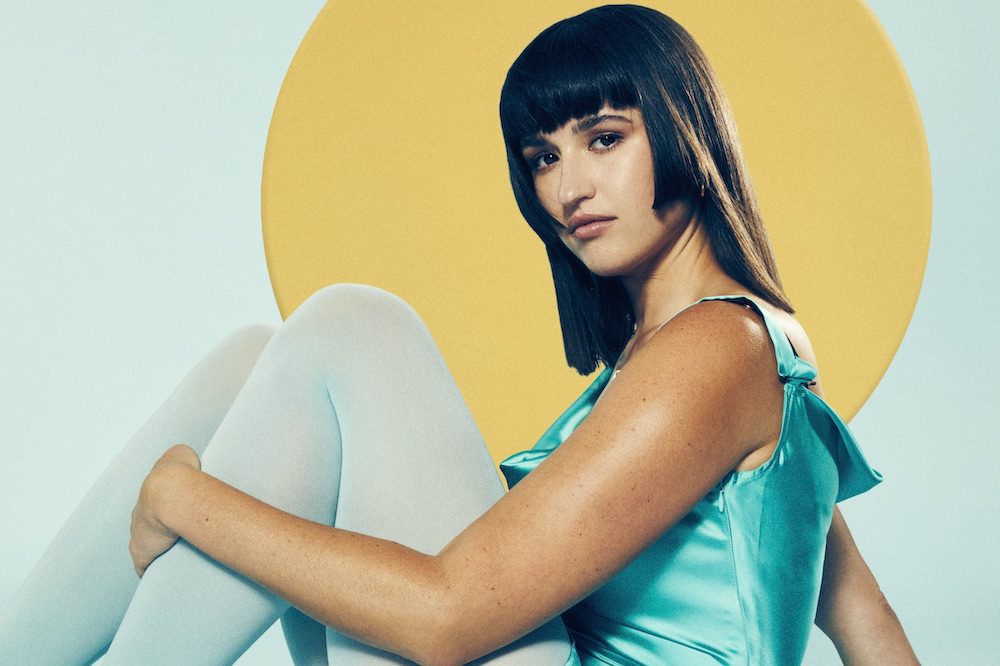Rozzi Takes Down Gaslighters with Video Premiere of “Mad Man”


Most women have had the experience of apologizing when they didn’t need to — or, in fact, when the other person should have been sorry. That’s why the first verse of pop singer-songwriter Rozzi’s latest single “Mad Man” is so relatable: “Damn right I’m upset/Why am I apologizing/You’re the one that fucked up/But here I am compromising.”
Rozzi wrote the song in collaboration with Liz Rose (Taylor Swift, Nelly Furtado, Jewel) and Jamie Kenney (Miranda Lambert, David Archuleta) about an experience with a man she worked with who would call her hysterical or tell her to calm down when she got mad. “The only way I could get what I wanted or get my opinion heard was if I cloaked my frustration or anger in a sweetness or innocence or a softer voice,” she says. “I found it exhausting because I wasn’t a raging bitch; I was frustrated for a justifiable reason.” In the song’s soulful chorus, Rozzi belts her reaction to the criticism: “No I’m not a monster/Sometimes I get mad man/And I won’t speak softer/Just cause I’m a girl and you don’t think a girl should get mad.”
“Mad Man” originally started off as a poem, which Rozzi saved until she could work with Rose, which had been a dream of hers. Kenney produced the demo and played keys, and a number of producers in London and New York worked on the track. “The song had a few lives and went through a few different iterations before we found it,” says Rozzi.
The song reflects the typical soul influences driving Rozzi’s music, using minimal production and a 6/8 mid-tempo in order to leave room for long notes. “I wanted to make sure we left space so we could hear my voice,” she says. “I wanted it to feel very musical and very soulful and really raw.”
In the video, premiering today via Audiofemme, Rozzi plays to women’s collective rage fantasies: she sits at a dinner table full of men, pleadingly singing to them, then jumps up on the table and knocks everything down. From a lover to an authority figure, all the men represent someone who has treated her as lesser over the course of her life.
“I was acting out this emotion I’ve felt a hundred times over,” she says. “It’s a feeling women, especially women in the music industry, have felt — a certain belittling feeling that someone’s not really listening to you — and I got to enact it on a really animalistic level. I felt anger while I was shooting, and it was really cathartic, and I hope it comes across as an artistic expression of the feeling women feel all the time.”
Her goal is that the song and video help others who have experienced gaslighting feel free to feel whatever they feel. “I would hope it makes them feel like their emotions are not wrong and their emotions are not shameful,” she says. “They are human, and there are plenty of reasons we should be mad, and that’s okay.”
Rozzi was discovered by Adam Levine at age 19, becoming the first artist signed to his label 222 Records in 2012 and touring with Maroon 5, as well as a number of well-known acts such as Owl City. She released her first EPs Space and Time in 2015, followed by her 2018 debut album Bad Together. She plans to release her third EP Hymn for Tomorrow on July 30, followed by an album featuring the seven songs on the EP plus seven more songs later this year.
The Hymn for Tomorrow EP deals with vulnerability, strength, and their interplay, asking the questions: “Does love have to be hard? Does love have to be painful? And in order to feel passion, do you also have to feel unsafe?” Rozzi doesn’t think so, and she made that the mission statement of her EP. “There is such a thing as passion and butterflies and sexiness while feeling safe and secure and really loved in a relationship,” she says. “I liked ending it on that note because there’s enough darkness in the world, and I like to give hope.”
She’s currently wrapping up the creation of her next album and gearing up for some live shows later in the year. She’s also recently been expanding her creative ventures into writing, publishing several pieces in Spin magazine on her own life as well as artists who inspire her. She also co-hosts the podcast Ugh! You’re so Good!, where she interviews people about what makes them good at what they do.
The key to her own success has largely been her ability to write from her heart, creating raw lyrics and vocals that speak to her listeners’ emotions. “I write very personal songs — I don’t know any other way,” she says. “I’ve tried to write songs I don’t connect to on a deep personal level, and I never succeeded, so all the songs are really personal, really intimate, really raw, and I think being vulnerable is one of the strongest things you can do.”

